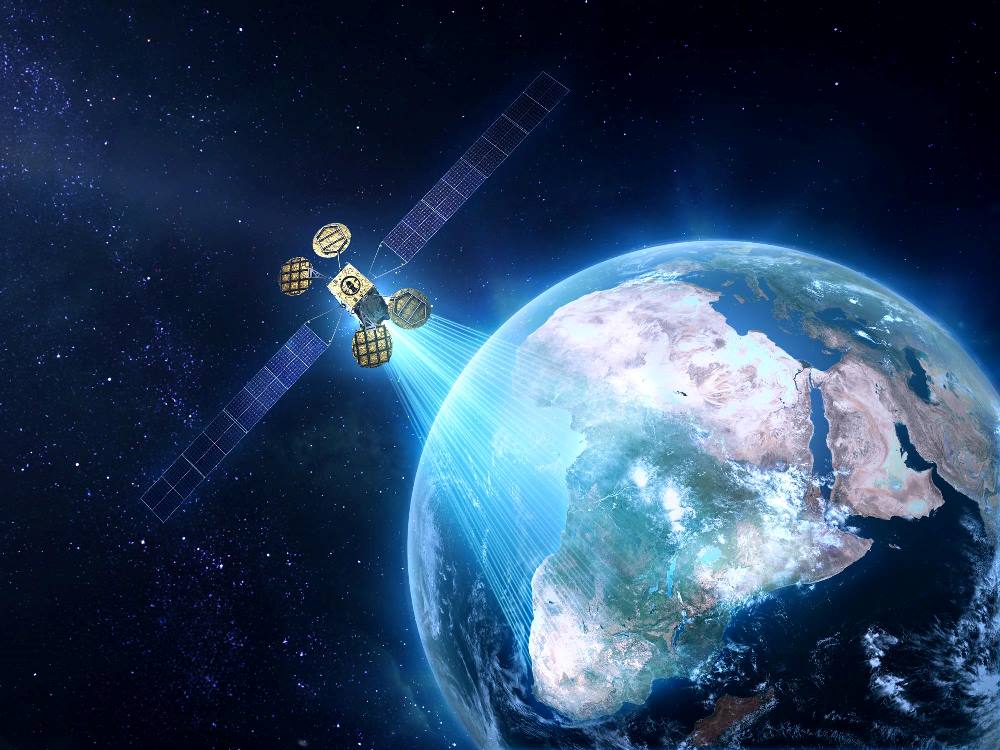Following the explosion of Facebook’s Israeli-built satellite AMOS-6 last week during a test launch by Elon Musk’s company SpaceX in Florida, all eyes are on the future of Israel’s space industry.
SEE ALSO: NASA And Israel Ink Deal On Space Cooperation
SpaceX, which designs, manufactures and launches advanced rockets and spacecraft, was set to launch Israeli communication satellite AMOS-6 last Thursday, when an explosion destroyed both.
AMOS-6 was touted as Israel’s most advanced satellite, the latest in a series of six which are mostly operated by Israeli company Spacecom and developed by its partner, Israel Aerospace Industries.
The biggest promise: Free internet access in Africa
Its goal had been to beam free internet across sub-Saharan Africa for Facebook, which in October 2015 had announced it would launch AMOS-6. Currently, only 17 percent of the population in the region has access to the internet.
The project was part of Facebook’s Internet.org, a non-profit initiative that brings together technology leaders, nonprofit organizations and local communities to provide Internet access to the most remote regions of the world.
But the deal with Facebook – which aimed to connect millions of Africans to the internet – has now been canceled due to the surprise explosion, Spacecom said on Saturday.
Facebook CEO Mark Zuckerberg wrote on his page on Thursday: “I am deeply disappointed to hear that SpaceX’s launch failure destroyed our satellite that would have provided connectivity to so many entrepreneurs and everyone else across the continent.” However, he stressed that Facebook remains “committed to our mission of connecting everyone, and we will keep working until everyone has the opportunities this satellite would have provided.”
The cancellation of the project is a blow to Israel’s Spacecom, since Facebook was expected to pay $100 million for the use of AMOS-6 in the years 2016-2032. Spacecom was in the midst of being acquired by Chinese company Xinwei for $285 million, a deal which now might not come to fruition, since one of the conditions was a successful launch of AMOS-6.
Meanwhile, future customers of AMOS-6 (such as television companies) are being diverted to the already orbiting AMOS-2 and AMOS-3 satellites, according to Spacecom.
Sign up for our free weekly newsletter
SubscribeToday, the company said in a report to the Tel Aviv Stock Exchange (TASE) that it expects a $173 million insurance refund for AMOS-6, which the company developed for the Israeli Airspace Industries (IAI), a government-controlled corporation. In addition, SpaceX – the launcher – is expected to reimburse Spacecom for $50 million for failing to launch the Israeli satellite.
SEE ALSO: Life on Mars? Israelis Design 3D-Printed Space Home For NASA
In its report to TASE, IAI confirmed today it has insurance funds to cover the loss of the satellite. IAI and Spacecom are waiting to learn more about the explosion from SpaceX, which is investigating the accident and is expected to provide a report.
More opportunities for the Israeli space industry
Founded 23 years ago in Israel, Spacecom operates an AMOS satellite fleet; it’s traded on the Tel Aviv Stock Exchange, with a market cap of $201 million, down sharply from last year’s $253 million.
But beyond the loss of AMOS-6, and the damages to Spacecom and its customers, questions are now being asked about what this means for the Israeli space industry, which has collaborated with NASA on several projects, including a future 3D-printed space home for its astronauts.
The prestigious magazine Defense News estimates that the explosion and the potential cancellation of Spacecom’s sale to China could turn out to be good news for the Israeli space industry.
With the Chinese deal clouded by uncertainty, the magazine posits that “IAI may have greater chances of snagging an Amos-6 replacement order, as well as follow-on contracts, that may have gone to non-Israeli firms once the sale was complete.”
Photos: USLuanchReport, Facebook, Brian Solis
Related posts

Editors’ & Readers’ Choice: 10 Favorite NoCamels Articles

Forward Facing: What Does The Future Hold For Israeli High-Tech?

Impact Innovation: Israeli Startups That Could Shape Our Future






Facebook comments